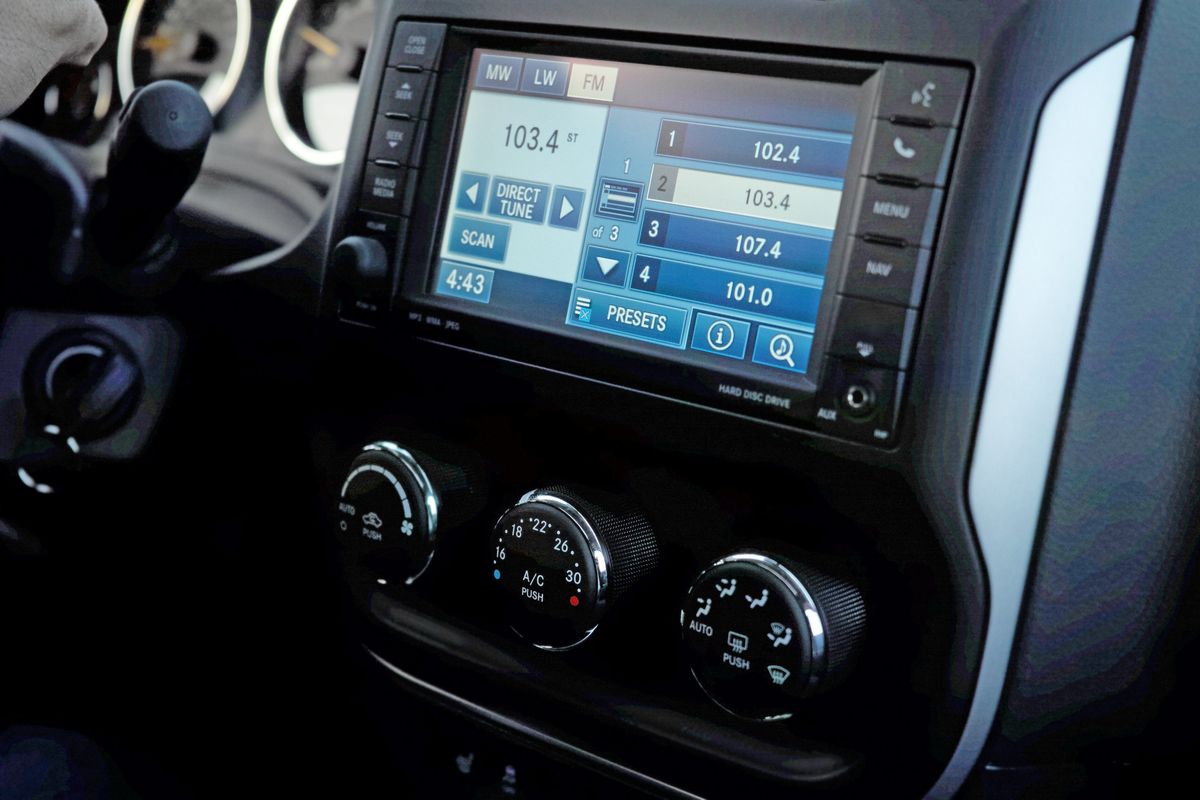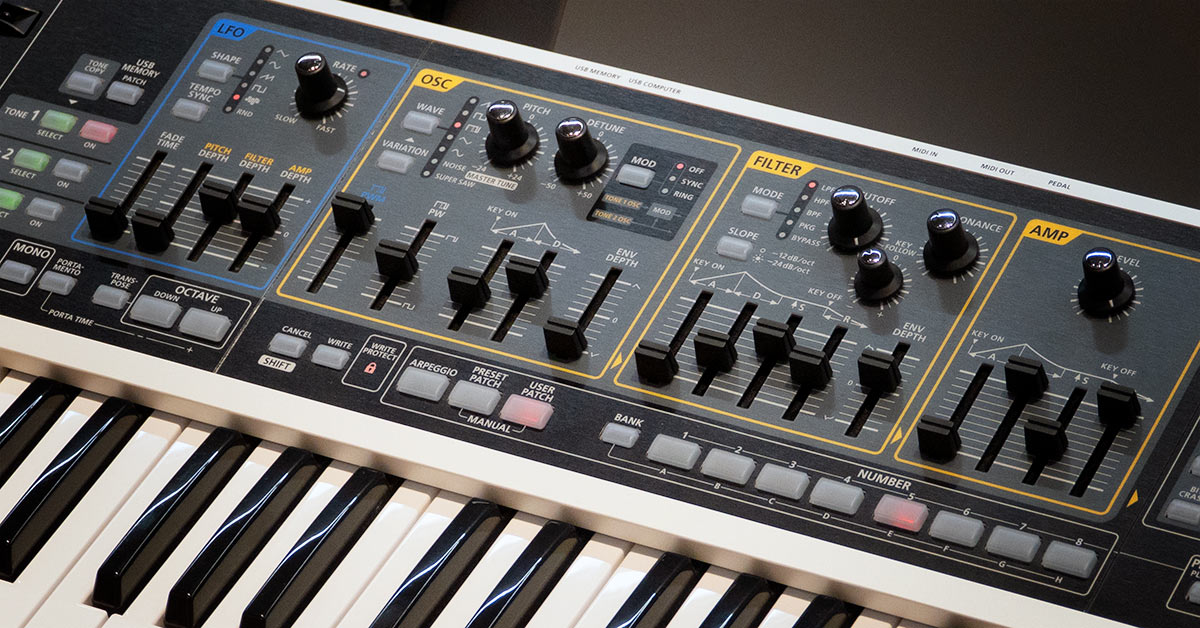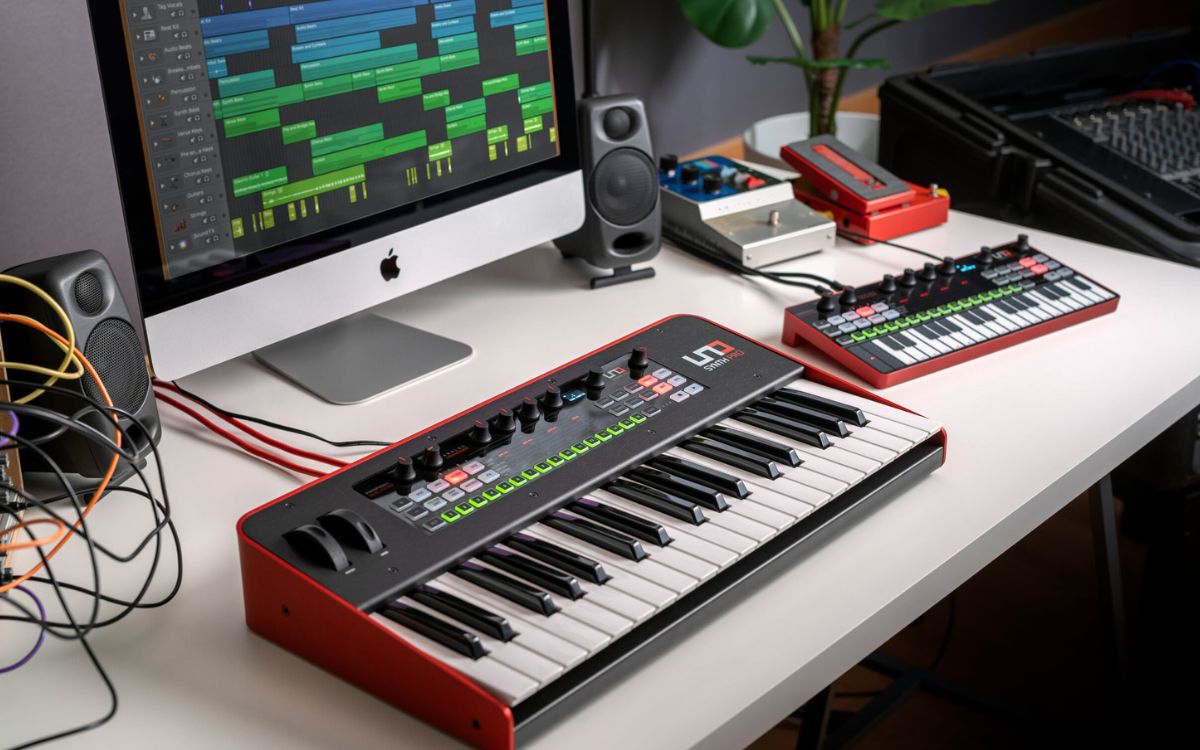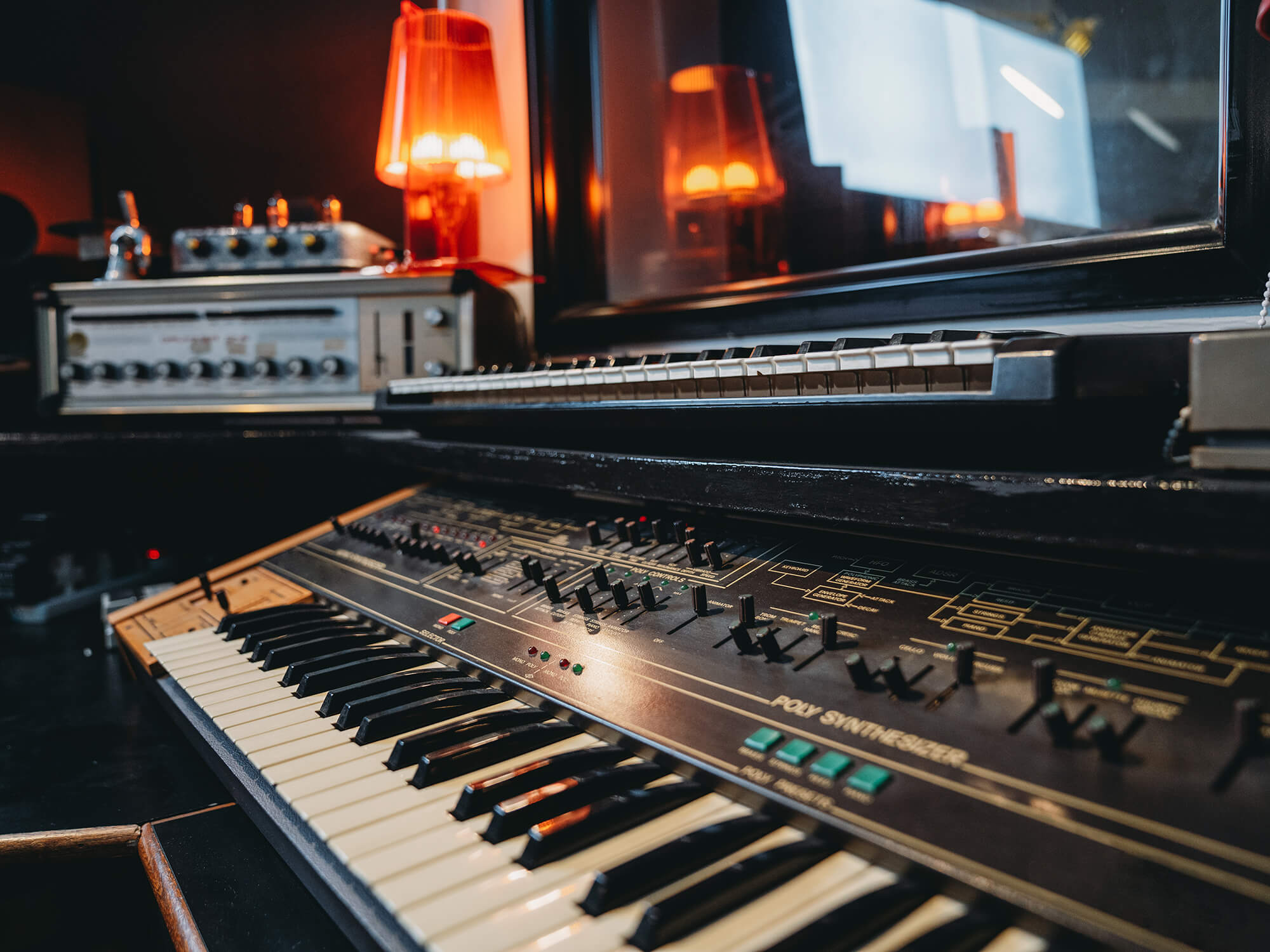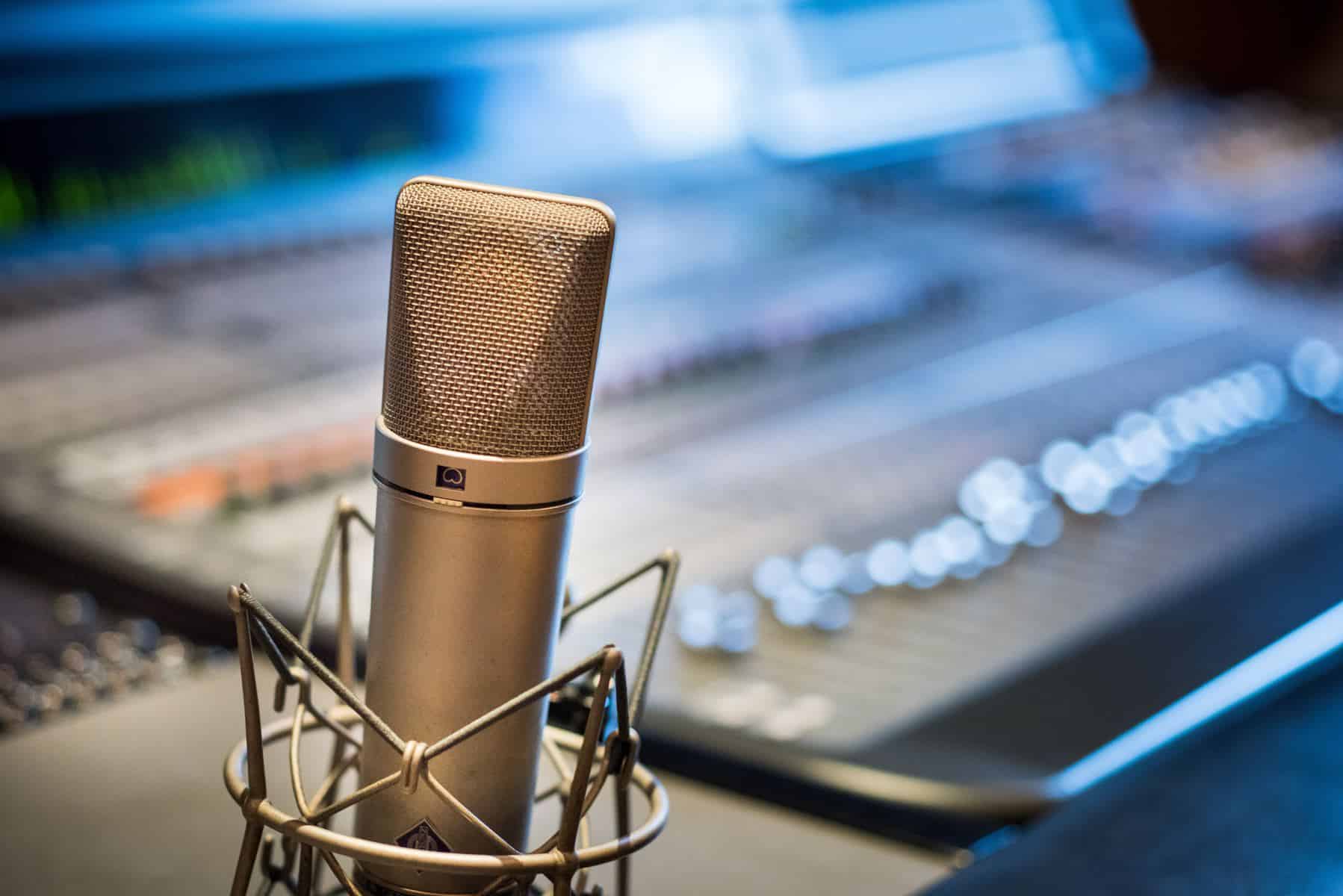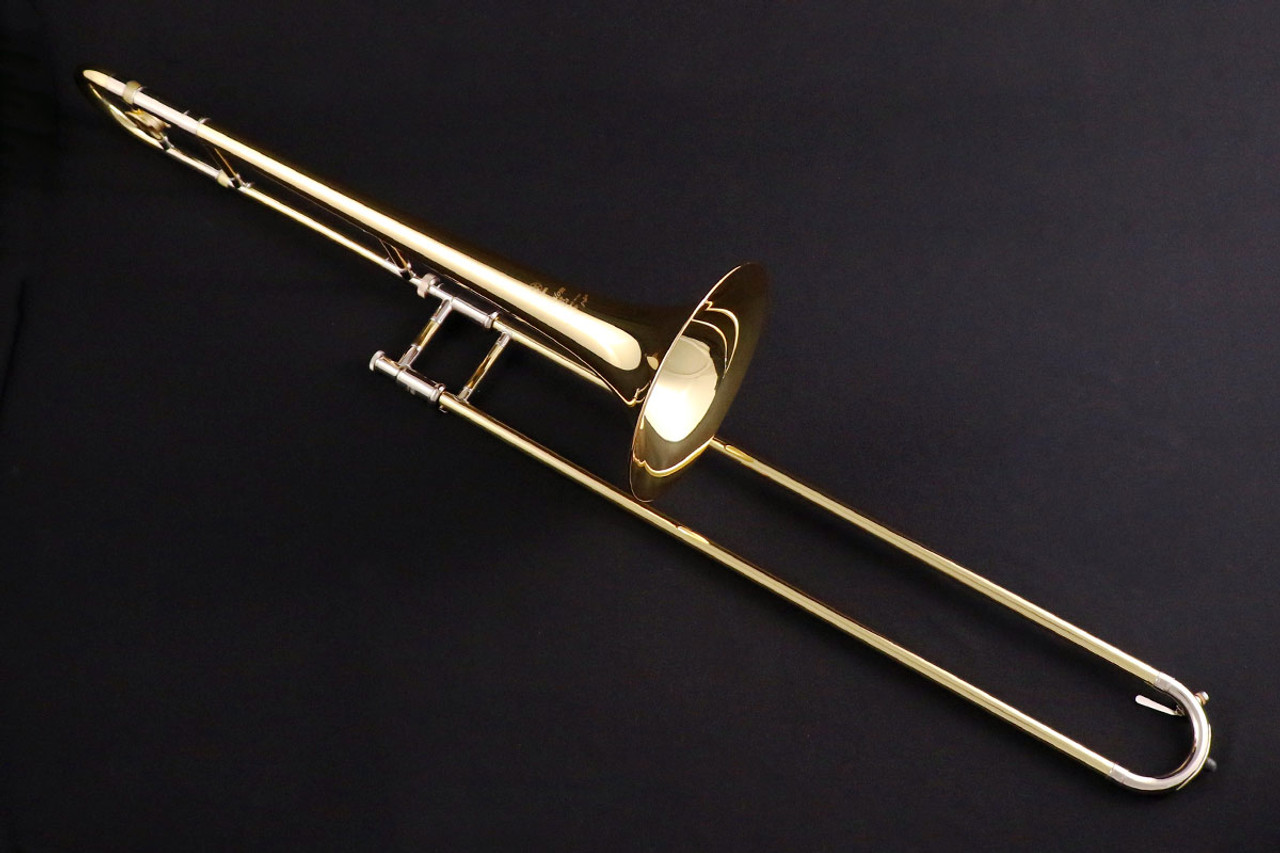Home>Instruments>Synthesizer>What Does A Synthesizer Cost
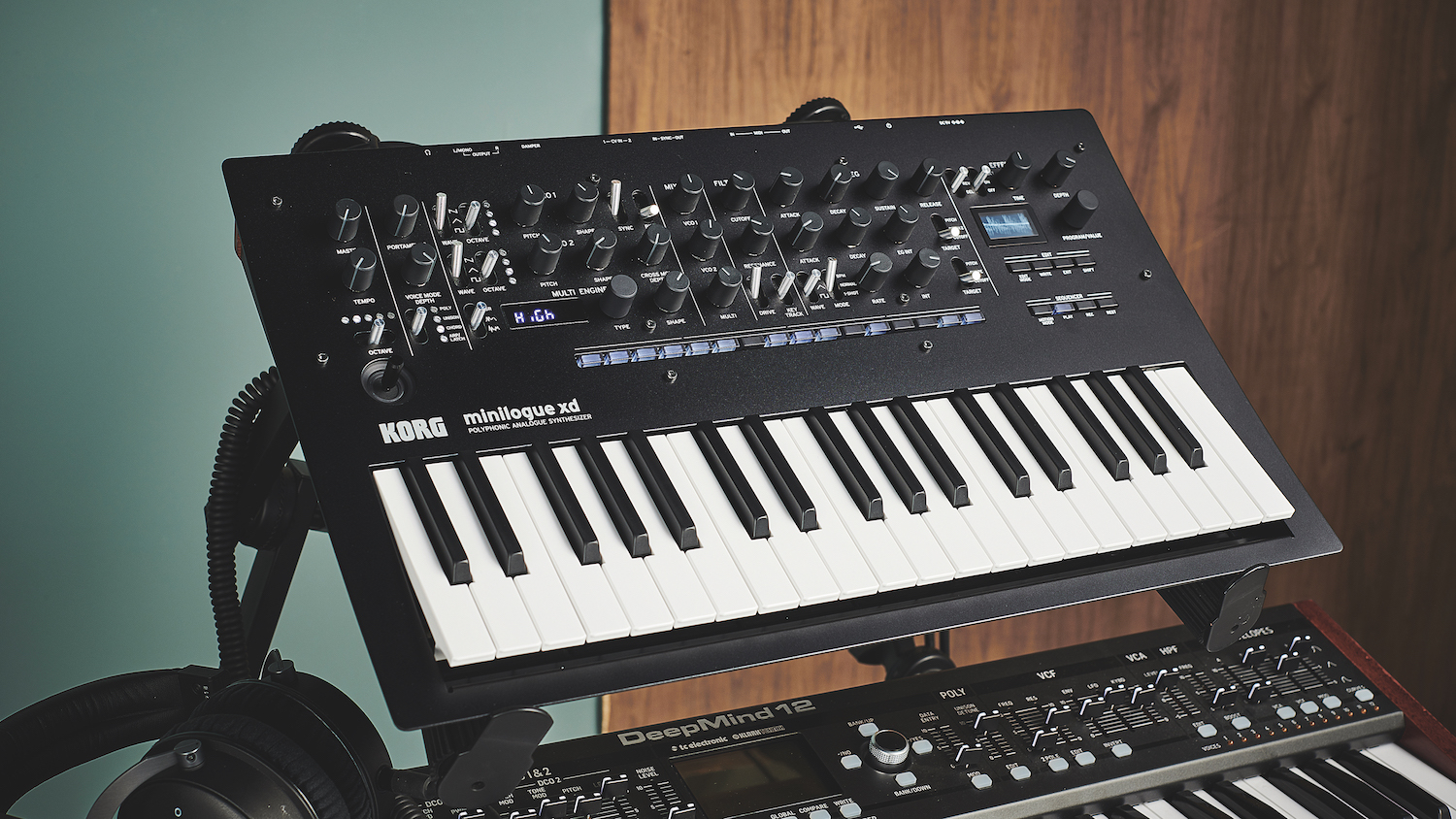

Synthesizer
What Does A Synthesizer Cost
Modified: January 27, 2024
Find out the cost of a synthesizer and explore options for different types of synthesizers that fit your budget. Discover the perfect synthesizer for you.
(Many of the links in this article redirect to a specific reviewed product. Your purchase of these products through affiliate links helps to generate commission for AudioLover.com, at no extra cost. Learn more)
Table of Contents
Introduction
When it comes to creating captivating electronic music, the synthesizer is an essential tool for musicians and producers. These electronic instruments have the power to shape and manipulate sound in ways that are limited only by one’s imagination. However, the cost of a synthesizer can vary greatly depending on various factors.
Whether you’re a beginner looking to delve into the world of synthesizers or an experienced musician searching for the perfect addition to your setup, understanding the different factors that influence synthesizer costs is crucial. This knowledge will not only help you make an informed purchasing decision but also ensure that you are getting the best value for your money.
From basic entry-level synthesizers to high-end professional models, the range of options available can be overwhelming. Additionally, factors such as brand reputation, features, quality, and rarity can significantly impact the price of a synthesizer. Let’s explore some of the key factors influencing synthesizer costs.
Factors Affecting Synthesizer Cost
There are several important factors that contribute to the cost of a synthesizer. By understanding these factors, you can better navigate the market and find the perfect synthesizer that fits your budget and requirements.
- Brand Reputation: The reputation of the synthesizer brand plays a significant role in its pricing. Well-established brands with a history of producing high-quality instruments often have higher price tags due to their reliability and craftsmanship.
- Features and Functionality: The range of features and functionality offered by a synthesizer directly impacts its cost. Synthesizers with advanced sound manipulation options, extensive connectivity, and programmability tend to be more expensive than their basic counterparts.
- Build Quality: The build quality and materials used in the construction of a synthesizer can affect its cost. Instruments made with premium components and durable materials are often priced higher due to their longevity and performance.
- Rarity: Limited edition or rare synthesizers can command a higher price due to their exclusivity and collectible value. These instruments often have unique features, special designs, or limited production runs, making them highly sought after by collectors and enthusiasts.
- Market Demand: The overall demand for a synthesizer in the market can influence its cost. If a particular model is highly sought after and in limited supply, the price may increase due to the law of supply and demand.
It’s important to note that while some factors directly affect the price, others can indirectly impact the cost of a synthesizer. For example, a synthesizer with a strong brand reputation and high market demand may be more expensive due to its popularity, even if it offers similar features to a lesser-known brand’s model.
It’s always a good idea to prioritize your specific needs and budget when considering these factors. While it may be tempting to go for the most expensive synthesizer on the market, it’s essential to choose one that aligns with your skill level, musical style, and budget.
Basic Synthesizers
Basic synthesizers are a great starting point for beginners and musicians on a tight budget. These entry-level instruments offer essential features and functionality at an affordable price point.
Basic synthesizers typically have a straightforward interface with fewer controls and options compared to higher-end models. They often come with preset sounds and limited programmability, making them user-friendly for those who are new to synthesizers.
While basic synthesizers may lack some of the advanced features found in more expensive options, they still offer plenty of creative potential. They allow users to explore different sounds, create basic melodies and rhythms, and learn the basics of synthesis.
In terms of cost, basic synthesizers can range from around $100 to $500, depending on the brand, build quality, and available features. These affordable options are ideal for beginners and hobbyists who want to dip their toes into the world of synthesizers without breaking the bank.
Sometimes, basic synthesizers can surprise users with the quality of their sound and versatility. Even with their limited features, they can still produce impressive results and be used in various genres of music.
If you’re just starting out or have a limited budget, a basic synthesizer is a great choice to begin your musical journey. It provides a solid foundation for understanding synthesis principles, experimenting with different sounds, and building your skills as a synthesist.
Mid-Range Synthesizers
Mid-range synthesizers offer a significant step up in terms of features, functionality, and sound quality compared to basic synthesizers. These instruments strike a balance between affordability and performance, making them a popular choice for intermediate musicians and professionals.
In the mid-range category, you can expect to find synthesizers with more advanced synthesis techniques, expanded sound libraries, and a wider range of controls and parameters. They often offer more extensive programmability options, allowing users to create unique sounds and customize their patches to a greater degree.
With improved sound engines and higher-quality components, mid-range synthesizers deliver richer, more nuanced tones. They offer a broader range of preset sounds and often include built-in effects processors for further sound shaping possibilities.
The price range for mid-range synthesizers typically falls between $500 and $2000, depending on the brand and specifications. While this may seem like a significant investment, these synthesizers offer a noticeable improvement in sound quality and versatility compared to their basic counterparts.
Mid-range synthesizers are well-suited for musicians who require more advanced features for studio productions or live performances. They provide the flexibility and sonic capabilities to explore various genres and styles of music. Additionally, many mid-range synthesizers offer hands-on control through knobs, sliders, and modulators, allowing for intuitive and dynamic performance.
If you’re looking to upgrade from a basic synthesizer or want a more powerful instrument that can handle complex sound design, a mid-range synthesizer is a great option. It provides a higher level of control and sonic possibilities while still being within a reasonable price range for serious musicians.
Professional Synthesizers
Professional synthesizers are the cream of the crop in the world of electronic music production. These high-end instruments are designed to meet the rigorous demands of professional musicians, producers, and sound designers.
Professional synthesizers offer an unparalleled level of sound quality, versatility, and customization options. They feature advanced synthesis engines, top-of-the-line components, and extensive connectivity capabilities. These synthesizers are often equipped with an array of modulation options, deep sound editing capabilities, and expandable memory.
In addition to their exceptional sound quality, professional synthesizers often come with a vast library of meticulously crafted presets, making it effortless to find the perfect sound for any musical project. They also incorporate sophisticated performance features and advanced sequencing capabilities, allowing for seamless integration into a professional studio setup or stage performance.
Due to their uncompromising quality and cutting-edge features, professional synthesizers often come with a higher price tag. Prices for these instruments can range from around $2000 to several thousand dollars, depending on the brand, specifications, and rarity.
Professional synthesizers are the go-to choice for musicians and producers who demand the utmost control, sonic flexibility, and sound quality in their music. They excel in complex sound design, intricate layering, and sound manipulation, making them an essential tool for creating unique and compelling compositions in various genres.
Furthermore, many professional synthesizers have become iconic and highly sought after in the music industry. Their distinct sound character and reputation among professionals contribute to their value and desirability.
If you are a professional musician or producer looking to take your music to the next level, a professional synthesizer is the ultimate investment. It will provide you with the tools and capabilities to unleash your creativity and produce professional-grade music that stands out from the crowd.
Vintage Synthesizers
Vintage synthesizers hold a special place in the hearts of many musicians and collectors. These instruments, typically produced in the 1960s to the 1980s, have become iconic for their unique sounds, vintage aesthetics, and historical significance.
One of the main factors that contribute to the allure of vintage synthesizers is their distinctive analog sound. Before the widespread use of digital technology, these synthesizers relied on analog circuitry and components, resulting in warm, rich, and sometimes unpredictable tones that many musicians find highly desirable.
Due to their age and limited availability, acquiring vintage synthesizers can be a challenging task. The prices of vintage synthesizers can vary significantly based on factors such as brand, condition, rarity, and demand.
Collectors and enthusiasts are often willing to pay a premium for well-preserved vintage synthesizers in fully functional condition. Prices for these instruments can range from a few hundred dollars for less sought-after models to tens of thousands of dollars for rare and highly sought-after classics.
While vintage synthesizers can be a hefty investment, they offer a unique character and charm that cannot be replicated by modern instruments. The nostalgia and authenticity of vintage synthesizers make them desirable for musicians seeking a distinctive sound and a connection to the rich history of electronic music.
When considering a vintage synthesizer, it’s essential to factor in the potential costs of maintenance and repairs. Due to the age of these instruments, finding replacement parts and qualified technicians who can service them can be challenging, which can add to the overall cost of ownership.
Owning a vintage synthesizer is not only about the sound but also about appreciating the craftsmanship and innovation of early synthesizer technology. It can be a rewarding experience for musicians, collectors, and enthusiasts alike.
If you have a passion for vintage gear and are willing to invest the time, effort, and resources, a vintage synthesizer can be a treasure that adds a unique flair to your music production and contributes to your musical journey.
Modular Synthesizers
Modular synthesizers are a playground for sound enthusiasts and experimental musicians. These instruments offer the ultimate level of customization and flexibility, allowing users to create complex and unique sounds through a modular system of separate modules that can be interconnected.
Unlike traditional synthesizers with fixed signal paths, modular synthesizers are highly modular and modular, allowing for endless possibilities in sound design. Users can mix and match various modules such as oscillators, filters, modulators, and sequencers to create their own signal flow and manipulate sound in unprecedented ways.
Modular synthesizers offer an unparalleled level of control and sonic exploration, but they require a deep understanding of synthesis concepts and signal flow. Users have the freedom to experiment and create their own unique patches, making each modular synthesizer setup truly one-of-a-kind.
Due to their highly customizable nature, modular synthesizers come in various shapes, sizes, and configurations. They can range from compact tabletop setups with a few modules to large, room-filling systems filled with racks of modules.
Modular synthesizers can also be quite expensive, as each module is usually purchased individually. Prices can vary depending on the brand, module functionality, and rarity. Building a comprehensive modular setup can be a significant investment, but it offers unparalleled sonic possibilities for those willing to dive deep into the world of modular synthesis.
Modular synthesizers have experienced a resurgence in popularity in recent years, attracting a dedicated community of artists, musicians, and sound designers. Their flexibility and exploratory nature make them ideal for pushing the boundaries of sound and creating truly unique sonic landscapes.
If you have a deep passion for sound experimentation and want complete control over your synthesis journey, a modular synthesizer can be an exciting and rewarding investment. Embracing the modular approach opens up a whole new world of sonic exploration and creative possibilities.
Software Synthesizers
Software synthesizers, also known as virtual synthesizers or softsynths, have revolutionized the world of music production. These digital instruments recreate the sounds and functionalities of traditional hardware synthesizers, but in a software format that can run on a computer or mobile device.
Software synthesizers offer numerous advantages over their hardware counterparts. Firstly, they provide a cost-effective solution for musicians and producers, as they can be purchased at a fraction of the cost of physical synthesizers. Many software synthesizers also offer free or trial versions, allowing users to test them out before making a purchase.
Another benefit of software synthesizers is their versatility and convenience. They can be easily integrated into DAWs (Digital Audio Workstations), allowing for seamless MIDI control and automation. With software synthesizers, users can have access to a vast library of sounds, effects, and modulation options all within a single plugin.
Software synthesizers also offer a wide range of sonic possibilities, often surpassing the capabilities of hardware synthesizers. These virtual instruments can model analog, digital, or hybrid synthesis with precision, providing extensive sound-shaping capabilities and the ability to create complex patches and soundscapes.
On the downside, software synthesizers rely on a computer’s processing power, which means they can be limited by the resources available. However, with advancements in technology, modern computers can handle complex software synthesizers without issues.
The market for software synthesizers is vast, with options ranging from beginner-friendly plugins with simplified interfaces to professional-grade synthesizers used by renowned producers and sound designers. Prices for software synthesizers vary, with some being extremely affordable and others commanding higher prices due to their advanced features and sound quality.
Overall, software synthesizers have become an indispensable tool in modern music production. Their affordability, versatility, and abundance of features make them accessible to musicians of all levels, from hobbyists to professionals.
If you’re looking for a cost-effective and flexible way to explore different synthesis techniques, experiment with sound design, and expand your sonic palette, software synthesizers are an excellent choice.
Conclusion
Choosing the right synthesizer can greatly enhance your musical journey and creative output. Understanding the various factors that influence synthesizer costs is essential in making an informed decision that aligns with your needs and budget.
Basic synthesizers offer an affordable entry point for beginners, providing essential features and functionality to explore the world of synthesis. Mid-range synthesizers strike a balance between affordability and performance, offering improved sound quality and expanded capabilities for intermediate musicians. Professional synthesizers represent the pinnacle of craftsmanship and features, catering to the demands of professional musicians and sound designers.
Vintage synthesizers carry a nostalgic appeal, providing unique analog sounds and a connection to the history of electronic music. Modular synthesizers offer unparalleled customization and sound exploration, allowing for endless creative possibilities. Software synthesizers provide an affordable and versatile solution, offering a vast library of sounds and effects in a digital format.
Ultimately, the right synthesizer for you will depend on your skill level, musical style, budget, and personal preferences. Consider the brand reputation, features, build quality, rarity, and market demand when making your decision.
Whether you choose a basic synthesizer to get started, a professional synthesizer for advanced performance, a vintage or modular synthesizer for unique sounds, or a software synthesizer for convenience and versatility, the world of synthesis awaits your exploration.
Embrace the power of the synthesizer, unlock your creativity, and embark on a sonic adventure that will transform your music into something truly extraordinary.

